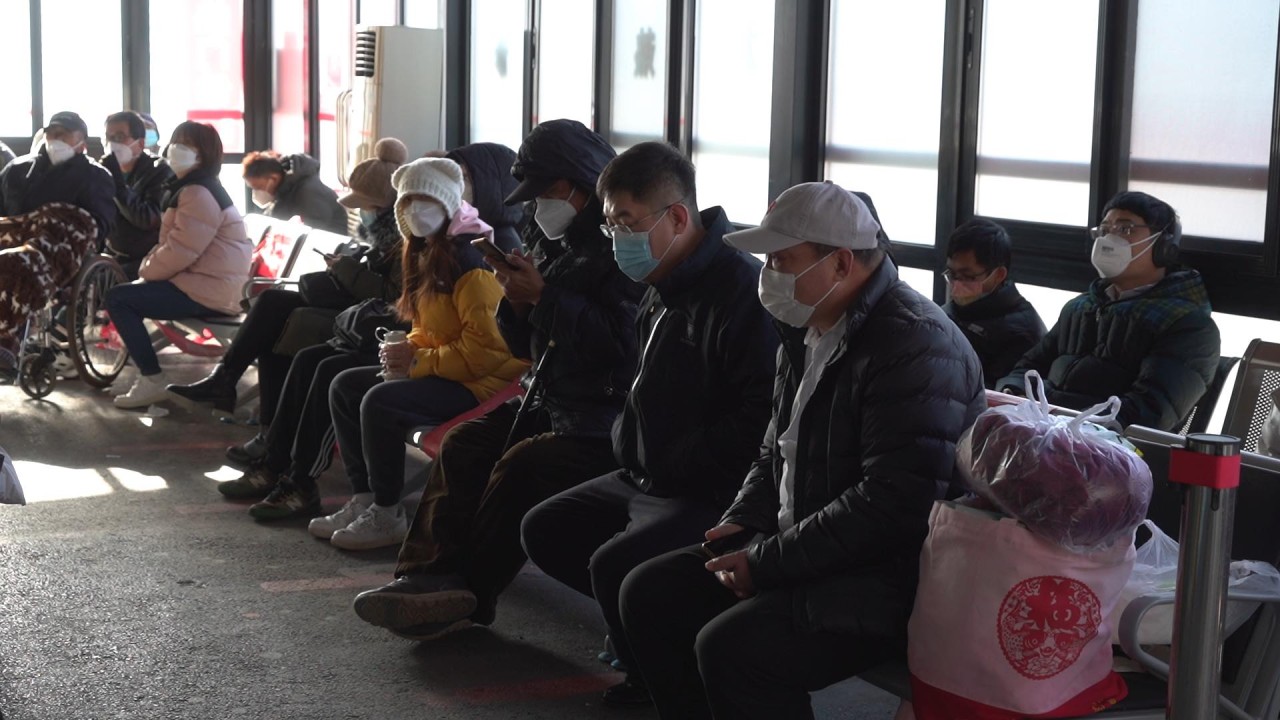
Young Chinese jobseekers who can’t find work feel increasingly lost in oversaturated labour pool
- Students lament a ‘degradation of academic qualifications’ in China, as a master’s degree from a top university has become the threshold for many positions
- Analysts do not expect China’s labour market to improve much for college graduates in the next year or two
Armed with a master’s degree from Hong Kong and a bachelor’s from Canada, Zheng Sihan did not expect her job hunt in mainland China to be so difficult.
“This is my second time as a graduate looking for a job on the mainland,” said Zheng, who earned her undergraduate degree in accounting last year. “I didn’t receive a desirable job offer at that time, so I decided to take a postgraduate year and join a new round of mainland recruitment.”
But even after padding her résumé with an advanced degree, her hunt has yielded even less than it did last year.
“Finding a job on the mainland has become very hard,” Zheng lamented in Hong Kong, where she will finish up her postgraduate programme next year. “It’s getting harder year by year. I probably won’t go back to the mainland to find a job.”
Zheng is among millions of college graduates who have grown increasingly frustrated amid the employment situation in China.
Meanwhile, graduates returning from overseas universities are also expected to bolster competition in the Chinese job market.
How reliable is China’s unemployment data, and how is it calculated?
Vergil Yin, a mainland graduate with a master’s degree in international business, said about one-fifth of the participants in the group interviews he attended had graduated from overseas universities.
“And in interviews with some foreign-owned or foreign trade companies, more than half of the participants had returned from overseas universities,” he added.
A report from LinkedIn’s data team this year showed that there was a dramatic increase in Chinese graduates returning from overseas during the pandemic. In 2021, China saw nearly 1.05 million returnees, compared with 580,300 in 2019.
In contrast with the continuous expansion of young jobseekers, jobs have been heavily curtailed by economic headwinds. The weakening economic momentum and stringent zero-Covid policy have hit many industries, especially tech, which has traditionally hired young talent.
“This year, many non-IT posts in tech firms are not available for graduates,” Zheng said. “It becomes increasingly difficult for us non-computer-science graduates to find a job in tech firms.”
Yin also pointed to the downsides of fewer available positions and more jobseekers.
“Some employers may hold off on giving you an answer while waiting for better applicants,” he said. “In some brokerage firms, even if you get an offer, you may have to work as an intern for about six months with no guarantee that you will end up as a regular employee.”
Can farmers’ kids only be farmers? China’s rural students battle class divide
The “degradation of academic qualifications” is another problem, according to Yin.
“A master’s degree from a top university has become the threshold for many positions,” he said. “But in most of the cases, these jobs can be easily fulfilled by someone with a bachelor’s degree, as long as they have practical experience.”
To address the employment issue, China is rolling out multiple supportive measures to help graduates enter the workforce in 2023.
It will increase the role of small- and medium-sized enterprises in absorbing talent, while it will also offer more support for self- and flexible employment, the Ministry of Education said last month.
The ministry has also urged local authorities to expand working opportunities in grass-roots organisations and optimise the recruitment of public service positions to stabilise employment.
Additionally, it encouraged university leaders to visit enterprises and better match their teaching programmes with the talent need in the job market.
And at a meeting of China’s Politburo last week, policymakers prioritised the stabilisation of employment, economic growth and prices for next year.
China’s recent easing of its zero-Covid policy is also expected to gradually lift economic growth and employment.
China must fix ‘fragile’ wealth accumulation before seeking common prosperity
Wu Yanhui, an associate professor of economics at the University of Hong Kong, said that the policy’s easing might help improve the employment situation slightly, but it will take a while for both the product market and labour market to recover.
“The unemployment or underemployment of young and educated workers is not a new problem,” he said. “It occurred before Covid as a result of economic slowdown. The pandemic worsened the situation.”
And he does not expect the labour market to improve much for college graduates in the next year or two.
“This is particularly detrimental to young people who are about to enter the labour market,” he added. “Plenty of research in the US and other countries has shown that entering the labour market during a recession has a long-term effect on workers’ career and human capital.”
Industries like real estate, tech and education are offering much fewer positions. But firms in the new energy industry are creating more positions
Faced with the changing policy and a raft of uncertainties, the fresh graduates hold varied views on their future employment prospects, and many are trying to remain hopeful that the situation will improve.
Wang Xuhui, who will graduate this month, is among those who have received employment offers since beginning his job search over the summer. Still, he is unsure of what the future holds for him.
“Finding employment this year is particularly difficult,” he said. “Industries like real estate, tech and education are offering much fewer positions. But firms in the new energy industry are creating more positions. It might be a good sign in the bleak status quo.”


